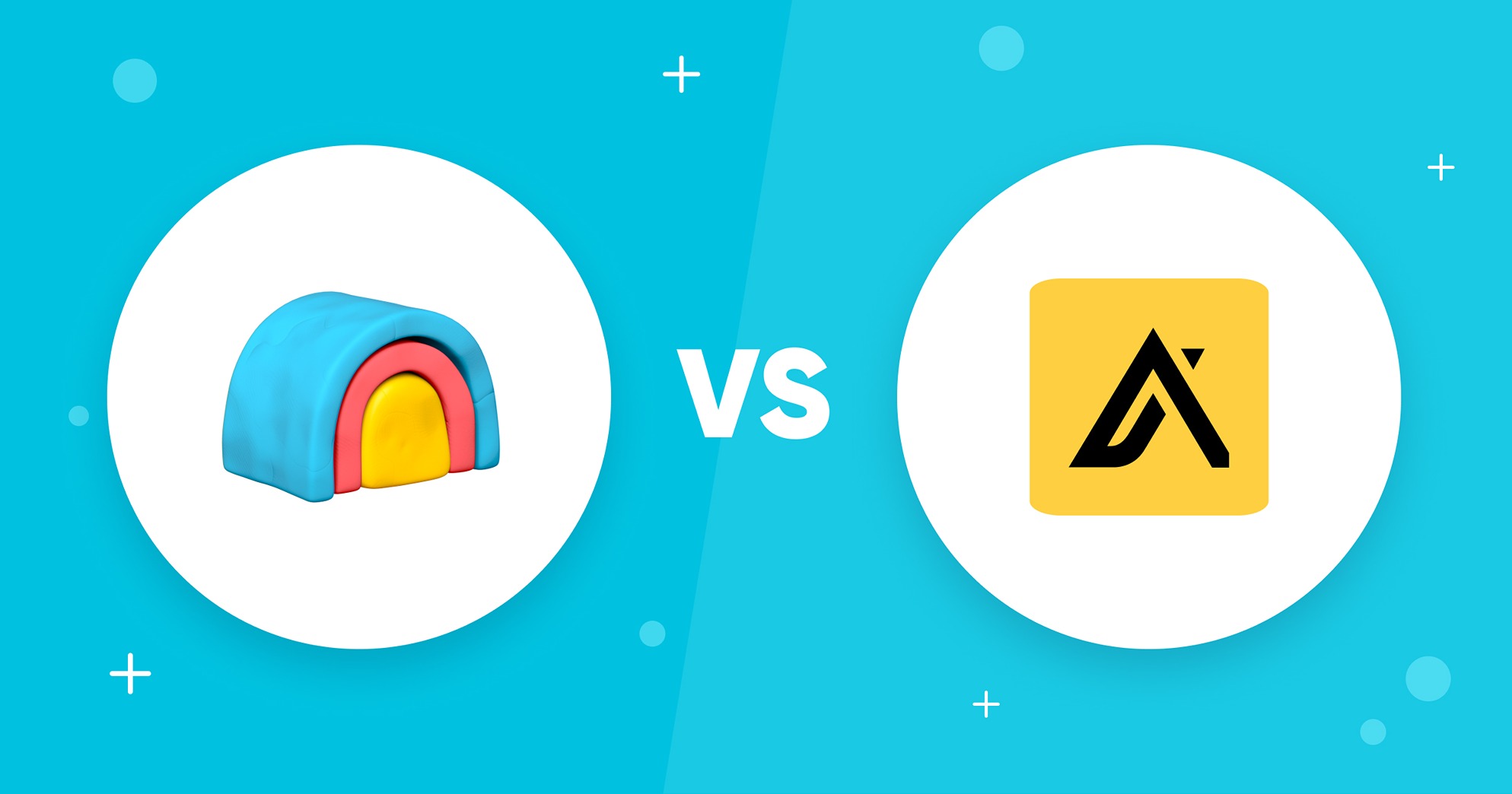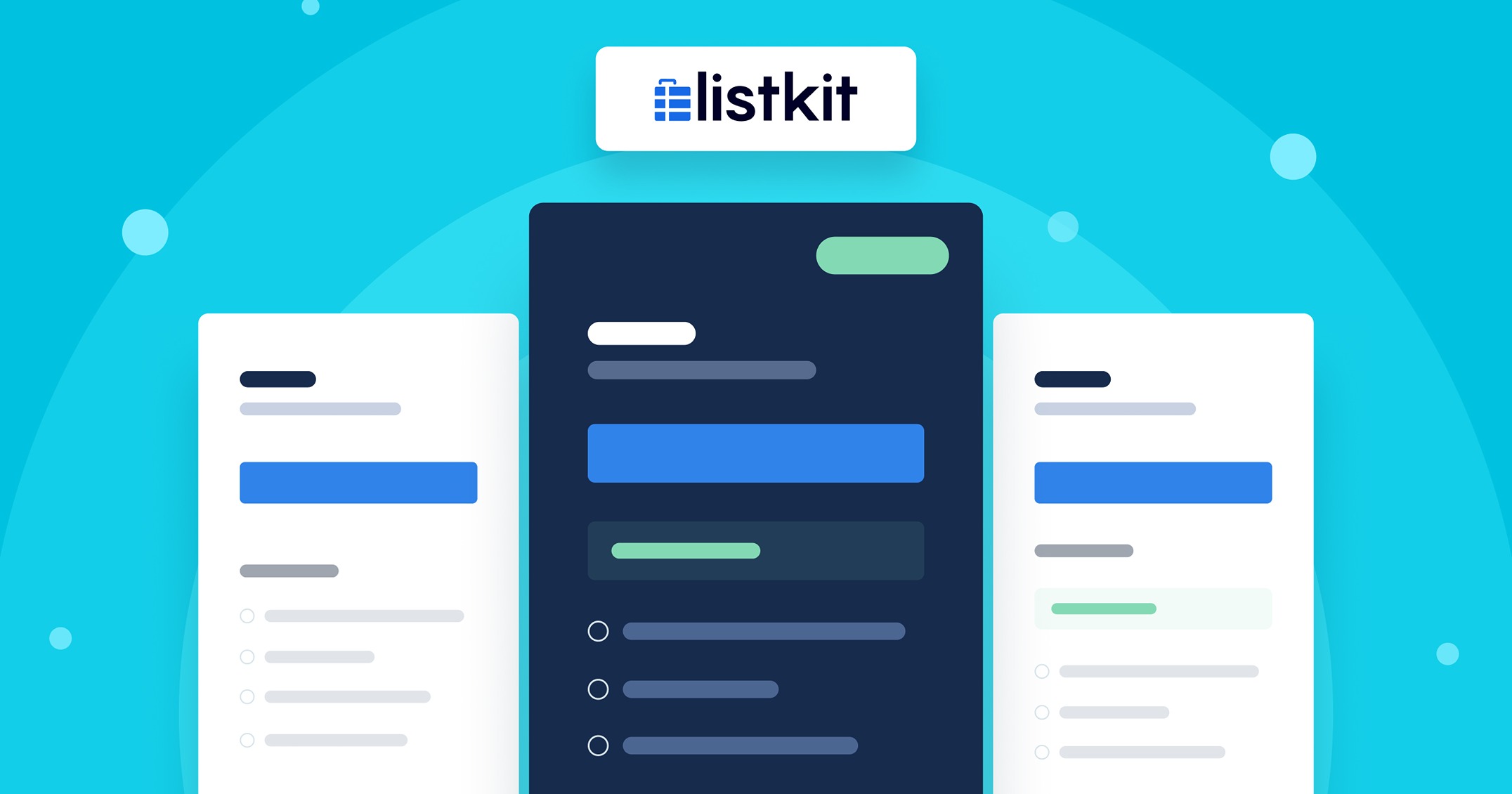As competition intensifies, sales and marketing teams need every advantage in identifying high-quality potential clients to fuel pipeline growth. However, with many data solutions now available, determining the right platform match based on budget, use case priorities, and intended adoption proves pivotal. This evaluation compares two leading B2B data providers—ZoomInfo and RocketReach—across dimensions like feature sets, data foundations, pricing models, and more to guide innovative tool selection.
What is ZoomInfo?
ZoomInfo is a vast B2B database platform providing sales teams with comprehensive contact and intent data to support sales and marketing efforts. The accuracy of ZoomInfo’s data helps professionals identify and engage with high-quality leads. Valuable features include intent monitoring to see companies researching products, technographic insights to assess tech stacks, and visitor identification to see website traffic sources.
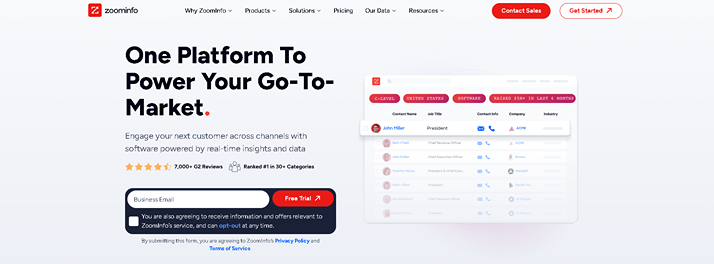
Integrations with CRM and marketing automation systems allow workflow automation to capture potential leads. ZoomInfo’s breadth of data and actionable insights empower businesses to boost productivity, increase revenue, and make informed data-driven decisions. With industry-leading coverage and precision targeting, ZoomInfo is leveraged by various industries for sales enablement, account-based marketing, and other use cases vital to business growth.
What is RockReach
RocketReach is a sales intelligence tool that delivers quick access to an accurate email database to empower outreach efforts. The easy-to-use interface allows professionals to discover contact details for prospects while browsing LinkedIn and company websites. By integrating seamlessly with CRMs, the platform helps sales and marketing teams manage relationships for long-term success.
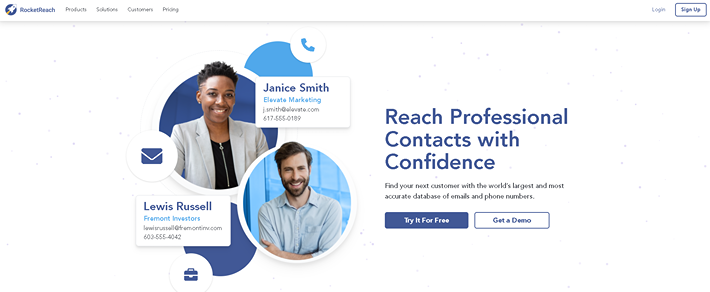
Key use cases include lead generation, intent monitoring, account-based marketing, and crisis response. With vast coverage across company and individual contacts globally, RocketReach focuses on fueling productivity and pipeline growth. The tool aims to save users time while providing personalized, human-led selling opportunities through enriched data and insights.
ZoomInfo vs. RockReach Comparison Guide
ZoomInfo and RocketReach are leading sales intelligence platforms but target different use cases. While ZoomInfo provides extensive firmographic data and embedded workflows to facilitate enterprise account-based sales and marketing, RocketReach efficiently verifies direct contact data to enable personalized outreach efforts for individual practitioners.
Key Features
Understanding differentiation across product capabilities guides smarter alignment between tools and user requirements. This overview contrasts features, depth of data, underlying analytics, and customization options.
ZoomInfo
ZoomInfo equips enterprises to orchestrate data-driven account engagement powered by depth, automation, and analytical intelligence.
- Robust Company and Potential Customers Data: 300+ attributes across 15+ million companies to enable targeted outreach
- Lead Enrichment: Automated data enrichment and cleaning integrated with CRMs
- Visitor Tracking: Identifies anonymous website traffic for sales follow-up
- Technographic Profiles: Assesses companies’ tech stacks for smarter engagement
- News Alerts: Real-time alerts on trigger events to act quickly
- Flexible Search: Finds company professionals based on sophisticated filters and keywords
- CRM Integrations: Embeds data directly into workflow tools
RocketReach
RocketReach centers on efficient and accurate data verification to empower personalized outreach for individual sales practitioners and small teams. Its streamlined interface enables quick searches at scale to fuel human-driven sales conversations.
- Contact Verification: Confirms direct contact info for 130+ million professionals
- Bulk Lookups: Scalable search for email addresses and phone numbers
- Chrome Extension: Enables quick access to profiles while browsing
- Intelligent Recommendations: Uses interaction patterns to suggest relevant contacts
- Data Accuracy: Focuses on depth of direct contact data points
- Simplified Experience: User-friendly interface to drive productivity
ZoomInfo caters primarily to larger enterprises that optimize complex revenue engines, while RocketReach targets individual practitioners focused exclusively on contact verification. ZoomInfo’s comprehensive database, which encompasses 300+ firmographic and technographic details on 15+ million companies, facilitates nuanced segmentation, leveraging dimensions unavailable within RocketReach. ZoomInfo also provides embedded workflows and augmented intelligence like visitor tracking and predictive intent alerts oriented around account engagement.
Meanwhile, RocketReach concentrates on accurately confirming contact data for personalized messaging irrespective of company or technological context. Its streamlined interface and productivity accelerators aim to remove barriers to rapid human outreach. So, while ZoomInfo enables automation and enhancement for enterprise ABM, RocketReach gives individuals trigger-ready data to fuel one-to-one selling supplemented by personal rapport building. The sales acceleration tools align on the importance of reliable data yet differentiate across ideal use cases between programmatic precision and accessible simplicity, respectively.
Data
When choosing a sales intelligence platform, evaluating the data foundation across dimensions like accuracy, coverage, and reliability is imperative. This analysis examines how ZoomInfo and RocketReach compare in terms of their data capabilities.
ZoomInfo
ZoomInfo fuels enterprises with expansive intelligence to illuminate accounts, accelerate sales cycles, and sharpen targeting. Robust processes blend public and proprietary sources for accuracy and depth tailored to segmentation.
- Sources: Combines web scraping, partnerships, community contributions, and dedicated in-house company research tools for quality breadth
- Coverage: Includes 200+ million professional and 34+ million company profiles globally, with emails, phone numbers, firmographics, technographics, demographics, and buying intent
- Reliability: Uses AI, ML, and data scientists for ongoing monitoring, change tracking, and multi-layer verification
RocketReach
RocketReach gives individuals rapid access to verified contacts, enabling swift, personalized engagement. The streamlined sourcing concentrates exclusively on compiling key email, phone, and social contact points.
- Sources: Leverages user contributions, public records, and third-party providers to enable comprehensive database access
- Coverage: Focuses specifically on direct contact points like emails, phone numbers, and social handles across individuals
- Reliability: Regularly updates data but lacks transparency into verification processes
There are clear differences in strategy when contrasting the data capabilities between ZoomInfo and RocketReach. ZoomInfo takes a broad, 360-degree approach by combining extensive public data aggregation with proprietary in-house research to fuel firmographic, technographic, and intent-based datasets spanning 200+ million professional and 34+ million company profiles globally. This robust sourcing enables greater depth and breadth of coverage for enterprise use cases. ZoomInfo also dedicates AI, ML, and data science resources to multilayered monitoring and verification protocols for reliability.
In contrast, RocketReach deliberately focuses on doing one thing very well – compiling accurate and exportable direct contact points like emails, phone numbers, and social handles for over 130 million individuals. The streamlined data process concentrates on core contact elements sought by sales professionals pursuing personalized outreach. While both leverage public records and contributors, ZoomInfo’s blended approach unlocks more expansive signals tailored for segmentation and precise targeting behind high-value accounts. However, RocketReach offers self-service access to verified contacts outside of complex system implementation. Determining the ideal fit depends on the current scale, growth ambitions, and intended data application within existing tech stacks.
Overall, ZoomInfo excels in the comprehensiveness of its data foundation, spanning depth and reliability factors vital for sales and marketing use cases. In contrast, RocketReach deliberately focuses data efforts directly on contact points.
Integrations
Integrations extend the value of sales and marketing platforms by connecting data insights to downstream workflows. Evaluating integrations enables businesses to determine which tools can seamlessly embed within existing technology stacks. This analysis examines how the native integrations available in ZoomInfo and RocketReach compare.
ZoomInfo
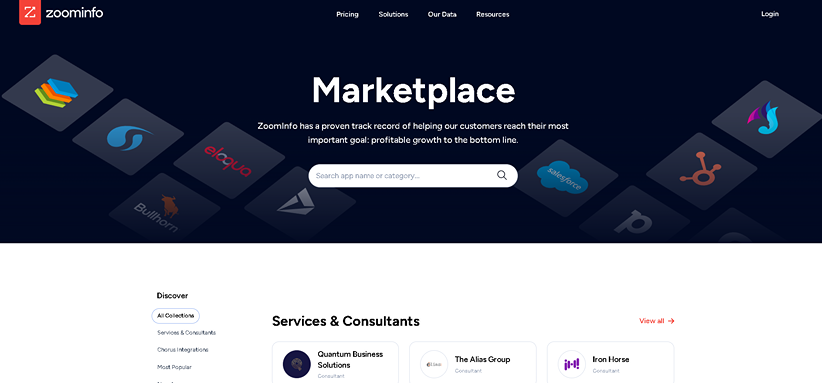
ZoomInfo amplifies existing infrastructure through embedded activations across foundational CRM, marketing, sales, and collaboration tools. The native integrations focus on bi-directional contact and account enrichment to minimize manual data wrangling.
- CRM Embed: Direct data sync with Salesforce, Microsoft Dynamics, and HubSpot CRM for in-platform contact and account enrichment
- Marketing Automation Connectivity: Tight links with HubSpot, Marketo, Oracle Eloqua, and Drift for campaign optimization
- Sales Engagement Alignment: Outreach, SalesLoft, Groove, and Conversica integrations to align sequencing with buyer insights
- Collaboration Enablement: Real-time alerts, tasks, and notifications available in MS Teams, Slack, Gmail, and Office 365
RocketReach
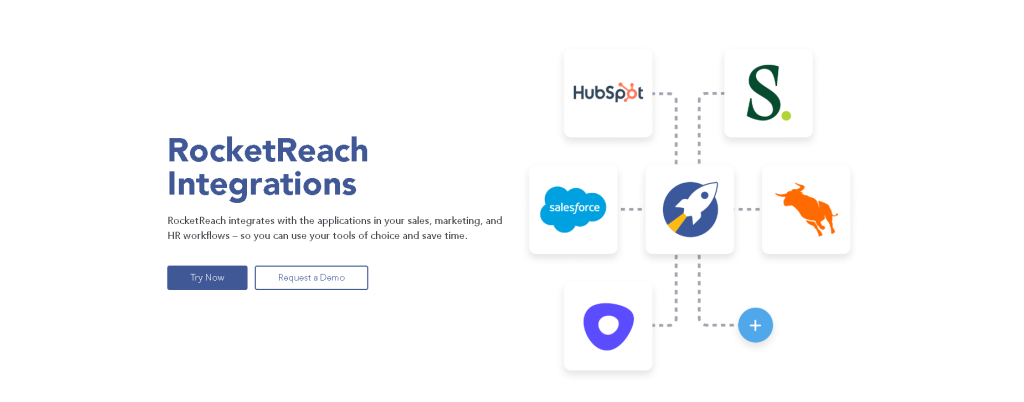
RocketReach offers lightweight, configurable integrations oriented around flexible batch contact and intent data exports. The streamlined approach provides individuals broader customization outside ecosystems through a spreadsheet, or Zapier flows.
- CRM Transfer: Exports contacts directly into Salesforce, HubSpot CRM, and Zoho CRM for access outside RocketReach
- Digital Workflows: Leverages Zapier to connect RocketReach data with over 1,000 downstream apps, including LinkedIn, Gmail, and Calendly
- Spreadsheet Export: Enables export of contacts into Excel and Google Sheets for offline analysis and synchronization
When analyzing the integration capabilities offered by ZoomInfo and RocketReach, there are clear strategic differences in their approaches. ZoomInfo enables robust native and embedded integrations into foundational platforms like CRMs, market analysis tools, sales engagement software, and collaboration tools. This allows for seamless, bi-directional syncing so that enriched contact and company data can flow seamlessly to augment workflows without manual exporting or importing across systems. ZoomInfo’s emphasis lies in enhancing existing infrastructure utility through embedded activations.
In contrast, RocketReach concentrates its integration strategy on flexible detailed insights exportability through batch spreadsheet transfer or custom connections configured via Zapier. There is less focus on establishing deep, native syncs or automatic enrichments to minimize complexity. While both platforms offer some CRM connectivity, RocketReach interactions lean more towards standalone exporting rather than enabling actual data augmentation within the systems. Determining the ideal approach depends on whether immediate control over exported contact batches or integrated, automated enhancement aligns better with existing pipelines. ZoomInfo embeds natively, while RocketReach exports freely.
The ideal choice comes down to use case needs between comprehensive, native integrations or streamlined exports complemented by Zapier’s custom connections.
Usability
Ease of use and seamless workflow integration are pivotal to user adoption of any new platform. ZoomInfo and RocketReach approach usability differentiation across factors like interface design, customization capabilities, and speed of implementation.
ZoomInfo
ZoomInfo offers expansive customization and functionality catering to sophisticated usage and complex workflows. However, a significant ramp-up is required to navigate the vast range of capabilities before users achieve long-term versatility.
- Intuitive Dashboard: A well-organized home screen provides quick access to core features and insights
- High Customization: Granular search, automation, and alert customization to meet specific use cases
- Steep Learning Curve: A wide range of capabilities requires more onboarding but offers long-term versatility
- Slower Implementation: Full platform integration is robust but complex, relying on extensive support resources
RocketReach
RocketReach prioritizes lightweight self-service adoption by constraining the feature scope to focus on rapid vast database lookup and export. This simplicity enables first-time users to integrate the streamlined functionality quickly but may pose scalability constraints.
- Simplified Functions: Clear, limited menu options aimed at enabling fast contact lookups
- Light Customization: Some search preferences are available but have lighter capabilities compared to ZoomInfo
- Low Learning Curve: Core features are easily understandable for most first-time users
- Rapid Implementation: Limited use cases allow for quick integrations focused on contact data syncing
The prime differentiator comes down to the tradeoff between sophistication and simplicity. ZoomInfo prevails in customization and functionality, while RocketReach wins on lightweight, self-service workflows. Alignment to existing team skill sets can guide the ideal choice.
Plans & Pricing
Evaluating and contrasting the plans and pricing models between ZoomInfo and RocketReach reveals significant differentiation in intended buying audiences.
ZoomInfo
ZoomInfo offers various pricing plans designed to cater to different business needs, focusing on providing robust prospecting tools and a comprehensive customer contact database. Pricing for ZoomInfo starts at $14,995 per year for the Professional plan, which includes 5,000 credits and allows up to 3 users. The cost of ZoomInfo primarily depends on the chosen plan, the number of credits, the number of users, and any additional features or add-ons a business might require.
ZoomInfo has three main pricing plans:
- Professional Plan: Costs $14,995 annually, offering 5,000 annual bulk credits. Additional users cost $1,500 each, with discounts available for more than 20 users.
- Advanced Plan: Priced at $24,995 per year, this plan provides 10,000 annual bulk credits and adds 1,000 monthly user credits. User fees increase to $2,500, with similar discounts for larger user groups.
- Elite Plan: At $39,995 annually, it includes 10,000 annual bulk credits and 1,000 monthly credits per user, with user fees consistent with the Advanced plan. This plan offers the most features and add-ons.
RocketReach
RocketReach embraces transparent, consumption-driven pricing tailored to needs, from personal usage to departments. The plans include:
- Essentials (email only): $48 per month (billed annually) includes unlimited personal, professional emails, 1200 exports, and browser extension
- Pro (Email + phone): $108 per month (billed annually) includes unlimited mobile and direct numbers, 3600 exports, technographic search
- Ultimate (email + phone): $249 per month (billed annually), adds API access, Salesforce integration
ZoomInfo vs RocketReach: Pros and Cons
ZoomInfo and RocketReach align in prioritizing accurate data but diverge in areas of focus, integration, and analytics. Understanding their respective strengths and limitations facilitates smarter alignment to business needs.
ZoomInfo Pros and Cons
ZoomInfo stands out for its unrivaled data foundation and built-in business intelligence spanning predictive alerts to visitor tracking. Yet, its sophisticated capabilities come with a steeper learning curve and rigid access presenting barriers for smaller teams.
Pros:
- Comprehensive Data Foundation: Unmatched depth and breadth of company and contact enrichment
- Sophisticated Capabilities: Advanced features spanning alerts, visitor tracking, technographics, and more
- Embedded Ecosystem Integrations: Native CRM, marketing automation, and collaboration enablement
Cons:
- Steep Learning Curve: A full gamut of capabilities requires more training and skill
- Rigid Access: Opaque custom pricing presents barriers to entry for smaller teams
RocketReach Pros and Cons
RocketReach simplifies contact verification with an intuitive interface, yet its uncompromising focus on efficient data confirmation comes at the expense of company insights, automation, and scalability.
Pros:
- Pinpointed Contact Verification: Uncompromising focus on email, phone, and social confirmation
- Intuitive Experience: Streamlined interface accelerates individual productivity
Cons:
- Narrow Scope: Limited data context beyond contacts hinders relationship insights
- Constrained Scalability: Gaps in automation and customization create growing pains
ZoomInfo vs RocketReach: The Bottom Line
Defining intended use cases is imperative for cost-effective ROI when choosing between sales intelligence platforms. Companies with sophisticated workflows will maximize ZoomInfo’s advanced analytics while individual practitioners benefit from RocketReach’s fundamental contact verification.
Choose ZoomInfo for Scaled Business Impact
For sizeable revenue targets, ZoomInfo empowers comprehensive data modeling, CRM augmentation, and automation required for enterprise-grade pipeline velocity and sales productivity. The breadth of recon context facilitates nuanced market segmentation and messaging personalization at scale.
Choose RocketReach for Personalized Outreach Efficiency
RocketReach lets entrepreneurs, freelancers, and extroverted closers quickly build targeted contact and email lists and engage via preferred mediums with context-limited to-point solutions. The uncomplicated interface removes friction when executing personalized, high-touch selling supplemented by first-party data gathering.
The contrast highlights how aligned technology, talent, and objectives shape positive ROI. Teams should choose what complements existing strengths.
Neither Tool a Good Fit? UpLead is the Ultimate Alternative
ZoomInfo over-indexes on sophistication with enterprise pricing misaligned for mid-market buyers. Meanwhile, RocketReach’s scope, customization, and scalability constraints pose growth hurdles. UpLead offers a compelling blend of best-of-breed attributes. Its 95% guaranteed data accuracy rivals ZoomInfo coverage, while real-time confirmation delivers on RocketReach verification guarantees. Advanced yet intuitive featurism spans predictive intent and CRM embedding, which is absent in RocketReach – at more accessible pricing than ZoomInfo’s rigid tiers. Combined accuracy, scalability, and usability without sacrifices make UpLead an appealing option for organizations striving to augment, not bloat, partner ecosystems. Try UpLead’s free trial today to experience the complete feature set.
FAQs About RocketReach vs ZoomInfo
Below are a few of the most frequently asked questions about Rocketreach and Zoominfo.
ZoomInfo edges RocketReach in the depth and breadth of data and capabilities, while RocketReach leads in ease-of-use focused purely on contact verification. The choice depends on whether your priorities lean towards comprehensive intelligence or streamlined simplicity.
RocketReach is considered a reliable source, with 95% of S&P 500 companies trusting its comprehensive database accuracy. Its focus on the completeness of direct contact details drives confidence.
ZoomInfo competitors like UpLead or Cognism may better fit depending on your specific needs. For example, Cognism offers unrestricted global data coverage, whereas ZoomInfo has boundaries. UpLead provides a balanced blend of sophistication and simplicity that aligns better for some use cases.
What You Need to Remember About ZoomInfo vs RocketReach
When aligning sales solutions to objectives, one size rarely fits all. ZoomInfo prevails where breadth and depth of data enrich CRM ecosystems for segmentation at scale. Meanwhile, RocketReach’s simplicity empowers personal outreach velocity if context beyond contacts proves unnecessary. In both cases, UpLead presents an alternative balancing sophistication and usability. Carefully weighing strengths to needs streamlines adoption while minimizing wasted spend. However, investing in aligned technologies, processes, and personnel ultimately determines transformational growth potential.


